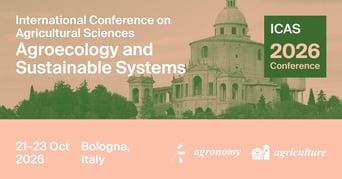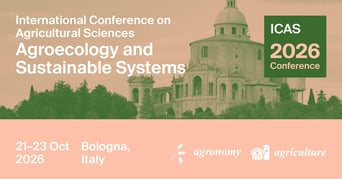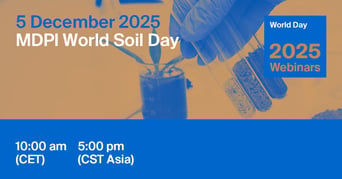- 3.6Impact Factor
- 6.3CiteScore
- 19 daysTime to First Decision
News & Conferences
Latest News & Announcements
Latest Conferences
Propose a Conference Collaboration
Promote and publicise your upcoming conference with MDPI.
All News & Conferences
News & Announcements
MDPI’s Journal Cluster of Agricultural Science
2 February 2026
News & Announcements
MDPI INSIGHTS: The CEO's Letter #31 - MDPI 30 Years, 500 Journals, UK Summit, Z-Forum Conference, APE
2 February 2026
News & Announcements
Meet Us at the 1st International Technical Conference of the Curativa Avia Project, 6–7 February 2026, Warsaw, Poland
23 January 2026
News & Announcements
MDPI’s Newly Launched Journals in December 2025
9 January 2026
News & Announcements
Article Layout and Template Revised for Future Volumes
11 December 2025
News & Announcements
Environment & Earth Sciences Book Competition
10 December 2025
News & Announcements
World Soil Day—“Healthy Soils for Healthy Cities”, 5 December 2025
5 December 2025
MDPI Conference
The 2026 International Conference on Agriculture Sciences: Agroecology and Sustainable Systems
21 - 23 October 2026
MDPI Conference
The 2026 International Conference on Agriculture Sciences: Agroecology and Sustainable Systems
21 - 23 October 2026
5 - 5 December 2025
News & Announcements
MDPI Webinar | World Soil Day, 5 December 2025
28 November 2025
of 17










